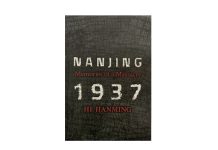From Lau Siu-kai
Ma Ying-jeou, former chairman of the Chinese Kuomintang party, will lead a delegation of young students on a second exchange visit to the Chinese mainland from April 1 to 11. During the first exchange visit last year, Ma and the young students mainly visited places of political and economic significance, especially those that have historical connections with Kuomintang.
During the trip, Ma and the students will visit Chinese cultural and historical sites and attend a ceremony to honor the Yellow Emperor, generally acknowledged as the common ancestor of the Chinese people, at his mausoleum. Cross-Taiwan Strait relations are at a low, and the ruling Democratic Progressive Party in Taiwan is to blame for that. The situation is so grave that the opposition Kuomintang and Taiwan People’s Party are reluctant to directly promote cross-Strait reunification, because the DPP, which refuses to acknowledge the 1992 Consensus that there is only one China and, instead, seeks “Taiwan independence”, regained power in the January elections on the island.
On the other hand, the United States, to fulfill its narrow interests, is ramping up efforts to ensure the mainland maintains the “status quo” across the Taiwan Strait, and continuing to upgrade its political and military ties with Taiwan by violating the three Sino-US communiqués. Under such adverse circumstances, civilian forces will inevitably have to shoulder the historical task of preventing a military conflict between the two sides of the Strait and facilitating the peaceful reunification of Taiwan with the motherland. Due to the toxic political atmosphere in Taiwan, Ma may face heavy political criticism for visiting the mainland. In particular, the US may view Ma and his visit to the mainland with suspicion. This means Ma is showing tremendous political courage by visiting the mainland and is committed to facilitating the peaceful reunification of the Chinese nation.
Ma’s visit to the cultural and historical sites on the mainland and his attendance at the ceremony to honor the Yellow Emperor convey the critical message that compatriots on both sides of the Strait share the same roots, the same ancestors, the same culture, the same destiny, and their historical bond is unbreakable. Taiwan compatriots for long have been poisoned by the “de-Sinicization” policies and actions of the DPP. Hopefully, Ma’s trip will awaken them to their “Chinese identity” and prompt them to think about cross-Strait relations and Taiwan’s future based on the understanding that compatriots on both sides of the Strait are members of one Chinese nation. When compatriots on both sides of the Strait recognize and respect the Chinese nation, the peaceful reunification of the Chinese nation will become a matter of course.
Using traditional Chinese culture to strengthen the emotional bond between compatriots on both sides of the Strait is the most feasible and effective method of easing cross-Strait tensions. Although “Taiwan independence” forces have long used their advantage of being in power to pursue “de-Sinicization” and try to detach Taiwan residents from the Chinese nation, traditional Chinese culture is too deep-rooted in Taiwan compatriots to abandon it. Taiwan residents revere traditional Chinese values, institutions and religion. It is impossible to supplant these values with concepts such as “independent Taiwan”, which is the antithesis of the Chinese nation, “Taiwan indigenous culture,” which is alienated from Chinese culture, or “Taiwan history,” which is separated from Chinese history. All these “concepts” are heretic contrivances propagated by Taiwan separatists and aimed at dividing the Chinese nation.
In recent years, traditional Chinese culture has become an essential component of Chinese modernization and the rejuvenation of the Chinese nation, with the Chinese leader repeatedly emphasizing the importance of traditional Chinese culture, especially in helping shape the country’s domestic and foreign policies. In October 2023, at a work conference on publicity, ideology, and culture, the top Chinese leader emphasized the need to strive to continue the Chinese cultural heritage and promote the creative transformation and innovative development of China’s excellent traditional culture, advance China’s excellent traditional culture and promote the protection and inheritance of China’s excellent traditional culture. –FP
Way back in January 2017, the central authorities have issued a document to promote the inheritance and development projects of excellent traditional Chinese culture.
Given the importance both sides of the Strait attach to and the respect they have for traditional Chinese culture, the interactions and cooperation between cross-Strait non-governmental organizations to promote and carry forward traditional Chinese culture will become increasingly close, and play a positive role in strengthening the emotional ties of compatriots on both sides of the Strait and lay a firmer foundation for the peaceful reunification of the Chinese nation.





